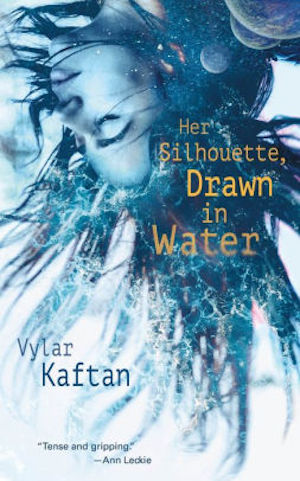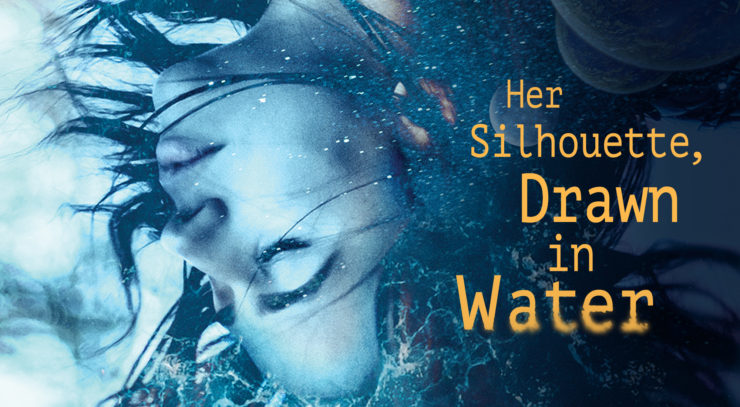Bee doesn’t remember her life before prison, not really. She knows what she’s been told by the only other person who shares her confinement in a twisty maze of rock chambers occasionally filled with large insect-like alien lifeforms that compete with them for food and sustenance: that she’s a telepath, and that she’s here because she killed a lot of people.
That other person is Chela, her lover, a telepath like Bee. Chela is everything Bee’s not: a better climber and survival expert, tall and light-skinned and model-gorgeous, invested in exploring their prison and keeping alive. But unlike Bee, she’s not determined to map the limits of their prison, to find a way out—and in the meanwhile, to find what beauty she can in the inside.
But as Bee struggles to remember the truth about herself and her imprisonment, she begins to feel that everything’s not exactly as it seems. Someone is reaching out to her telepathically, even though it shouldn’t be possible, and she begins to recall fragments of another life. And from those fragments, a wife. A wife who isn’t Chela, a woman called Jasmine—a woman Chela insists betrayed Bee, a woman Chela insists is the reason they’re both where they are.
Bee’s not sure what she believes.
Spoilers.
Buy the Book


Her Silhouette, Drawn in Water
In the wake of this revelation, Bee escapes. Nothing’s as she believed: the prison she was trapped in was in part a creation of her own mind. Her crime was only to exist. She’s been gone for ten years, held by the authorities simply for being a telepath, and Jasmine’s been searching for her the whole time, as the leader of a telepath rights organisation—and the leader of an underground resistance.
But Bee—Bee doubts herself. Her recovery, both physical and mental, will take time. She feels enormous guilt for cheating on her wife, though she didn’t know it was cheating. She feels guilt, too, that she can’t remember their life together except in disconnected fragments. And she feels anger and confusion, disorientation, at her circumstances and her emotions.
If Her Silhouette Drawn in Water is about anything, it’s about trauma. Trauma, and recovery, and trying to rebuild oneself, and trying not to hurt the people one loves in the process. It’s about claiming and reclaiming agency and power, and navigating a relationship with oneself and with a lover in the face of deep ruptures. Kaftan’s prose is elegant, gracefully descriptive: the world she creates is persuasive and atmospheric. Her treatment of Bee’s struggles and struggle to re-establish her sense of self is very compelling: Bee’s an interesting character, and one with whom it is easy to empathise.
The shift in structure and (partly) genre at the halfway point of this short narrative is a little jarring, but it’s meant to be: just as Bee’s assumptions are upset by her discoveries, so the reader is pushed to think differently about what we’ve already been told. Still, I’m not entirely sure that Her Silhouette Drawn in Water works as a unity. I’m not sure it doesn’t, either. It’s both gripping and interesting, and I enjoyed it a great deal, but I’m not altogether sure that it hits what it aims at.
Her Silhouette, Drawn in Water is available from Tor.com Publishing.
Read an excerpt here.
Liz Bourke is a cranky queer person who reads books. She holds a Ph.D in Classics from Trinity College, Dublin. Her first book, Sleeping With Monsters, a collection of reviews and criticism, was published in 2017 by Aqueduct Press. It was a finalist for the 2018 Locus Awards and was nominated for a 2018 Hugo Award in Best Related Work. Find her at her blog, where she’s been known to talk about even more books thanks to her Patreon supporters. Or find her at her Twitter. She supports the work of the Irish Refugee Council, the Transgender Equality Network Ireland, and the Abortion Rights Campaign.










